Ilona Eliasova
Identification of Hypokinetic Dysarthria Using Acoustic Analysis of Poem Recitation
Mar 18, 2022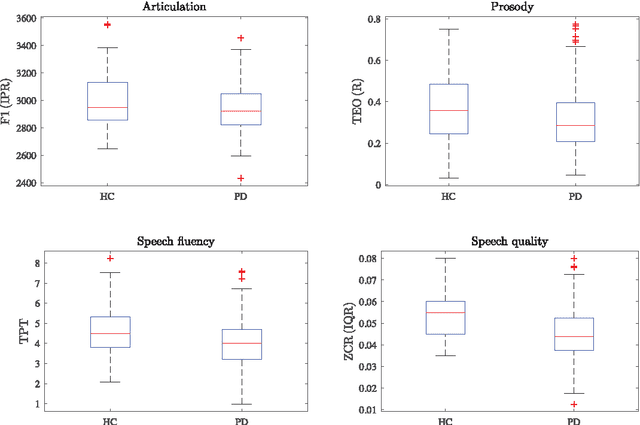

Abstract:Up to 90 % of patients with Parkinson's disease (PD) suffer from hypokinetic dysarthria (HD). In this work, we analysed the power of conventional speech features quantifying imprecise articulation, dysprosody, speech dysfluency and speech quality deterioration extracted from a specialized poem recitation task to discriminate dysarthric and healthy speech. For this purpose, 152 speakers (53 healthy speakers, 99 PD patients) were examined. Only mildly strong correlation between speech features and clinical status of the speakers was observed. In the case of univariate classification analysis, sensitivity of 62.63% (imprecise articulation), 61.62% (dysprosody), 71.72% (speech dysfluency) and 59.60% (speech quality deterioration) was achieved. Multivariate classification analysis improved the classification performance. Sensitivity of 83.42% using only two features describing imprecise articulation and speech quality deterioration in HD was achieved. We showed the promising potential of the selected speech features and especially the use of poem recitation task to quantify and identify HD in PD.
Robust and Complex Approach of Pathological Speech Signal Analysis
Mar 17, 2022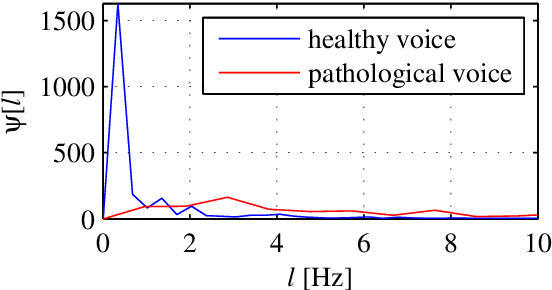


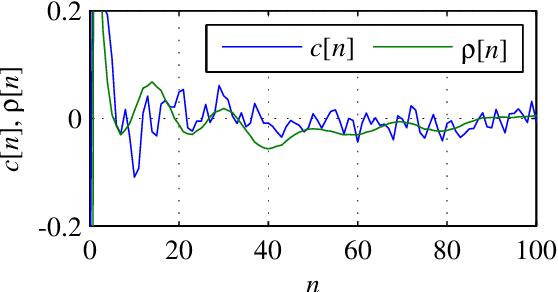
Abstract:This paper presents a study of the approaches in the state-of-the-art in the field of pathological speech signal analysis with a special focus on parametrization techniques. It provides a description of 92 speech features where some of them are already widely used in this field of science and some of them have not been tried yet (they come from different areas of speech signal processing like speech recognition or coding). As an original contribution, this work introduces 36 completely new pathological voice measures based on modulation spectra, inferior colliculus coefficients, bicepstrum, sample and approximate entropy and empirical mode decomposition. The significance of these features was tested on 3 (English, Spanish and Czech) pathological voice databases with respect to classification accuracy, sensitivity and specificity.
* 41 pages, published in Neurocomputing, Volume 167, 2015, Pages 94-111, ISSN 0925-2312
Assessing Progress of Parkinson s Disease Using Acoustic Analysis of Phonation
Mar 17, 2022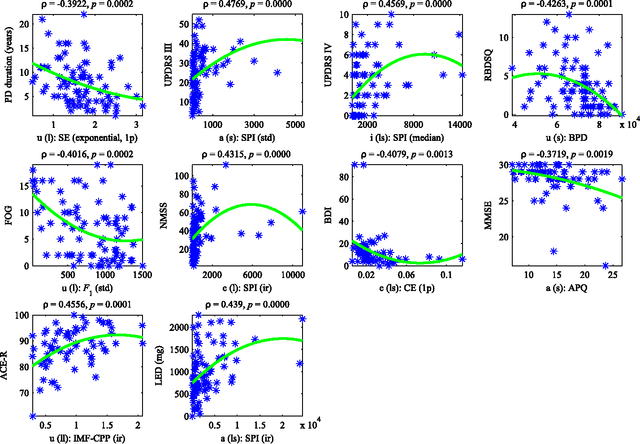
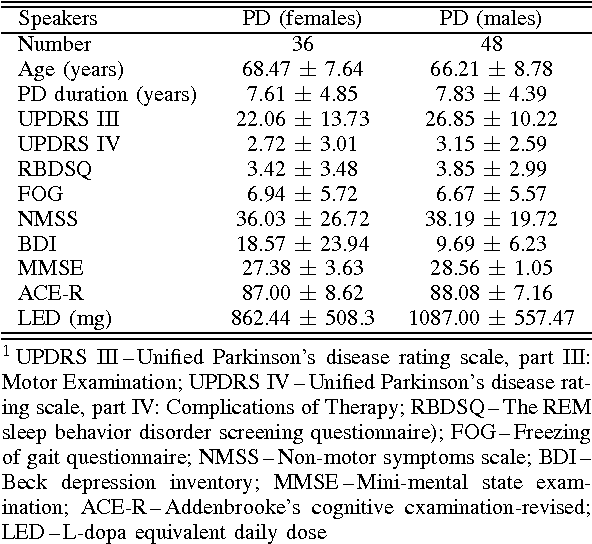
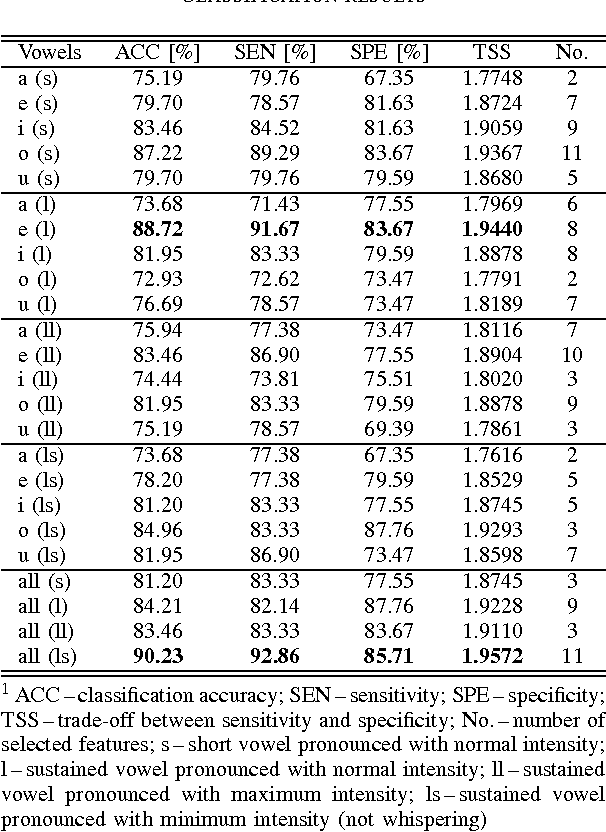
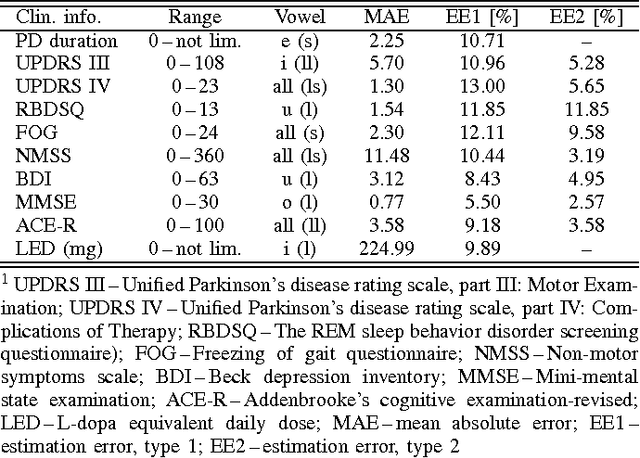
Abstract:This paper deals with a complex acoustic analysis of phonation in patients with Parkinson's disease (PD) with a special focus on estimation of disease progress that is described by 7 different clinical scales ,e. g. Unified Parkinson's disease rating scale or Beck depression inventory. The analysis is based on parametrization of 5 Czech vowels pronounced by 84 PD patients. Using classification and regression trees we estimated all clinical scores with maximal error lower or equal to 13 %. Best estimation was observed in the case of Mini-mental state examination (MAE = 0.77, estimation error 5.50 %. Finally, we proposed a binary classification based on random forests that is able to identify Parkinson's disease with sensitivity SEN = 92.86 % (SPE = 85.71 %). The parametrization process was based on extraction of 107 speech features quantifying different clinical signs of hypokinetic dysarthria present in PD.
* 8 pages published in the 4th IEEE IWOBI 2015, pp. 115-122, 10-12 June, 2015 Donostia-San Sebastian. ISBN: 978-84-606-8733-7
 Add to Chrome
Add to Chrome Add to Firefox
Add to Firefox Add to Edge
Add to Edge